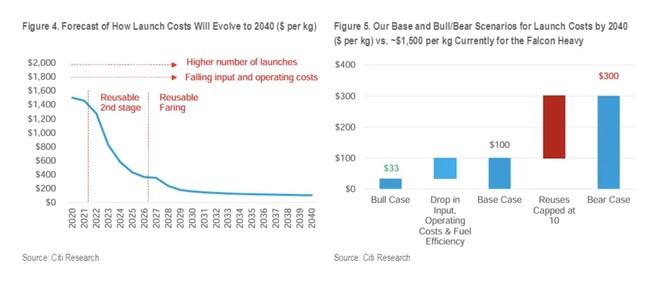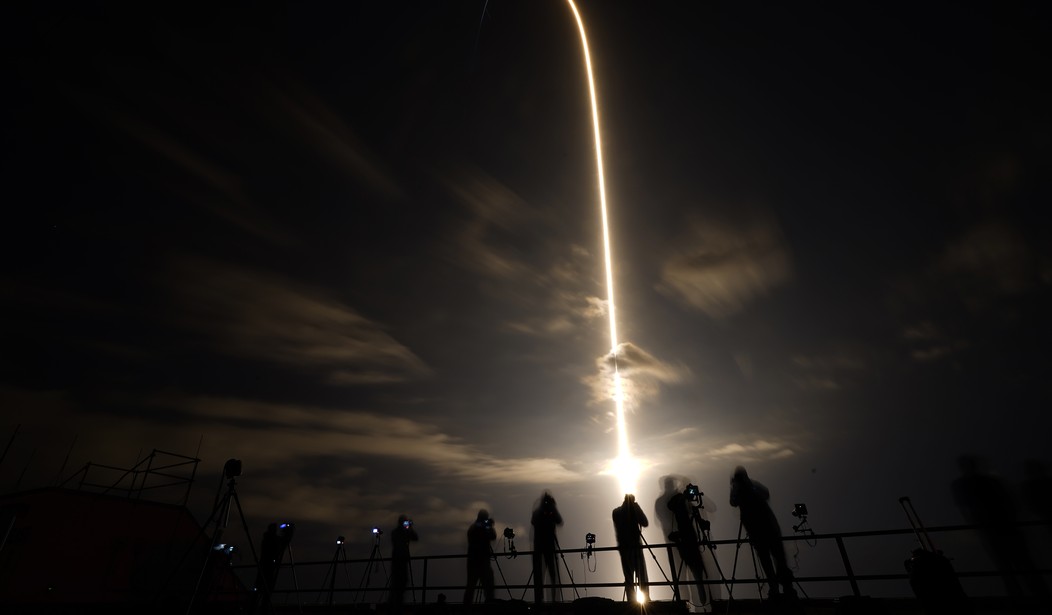If Elon Musk were a recluse who did nothing but build SpaceX, he would still be the most important figure of the 21st century.
That isn't hyperbole on my part. I truly believe it.
I spend much of my time focusing on what is going wrong in our society, and there is far too much to cover on that side of the street.
But honestly, there is still much that is going right, too, and most of that is in the engineering startup world. For every Boeing imploding before our eyes, there is a SpaceX or a Boom that is aiming to revolutionize some aspect of the world.
America still has entrepreneurs and visionaries who are building the future, and no other country houses more of them. And Elon Musk is a figure out of a Heinlein novel, dragging the world forward into a new age.
Forget Twitter. Forget politics. Even forget Tesla. SpaceX is changing the world, and many people haven't even noticed yet. But Musk is turning spaceflight into a commodity, and that will in turn open a new frontier.
Must read
— David Strom (@DavidStrom) April 1, 2024
🚀 Moore's Law meet Musk's Law: the underappreciated story of SpaceX and the stunning decline in launch costs https://t.co/hfH6RPWFAN
The blogfather Glenn Reynolds pointed to this great piece on Substack from James Pethokoukis, who seriously needs to get a more easily pronounceable name, which reminds us of the wonders happening in Boca Chica.
Less than a decade ago Musk's company SpaceX landed a Falcon 9 for the first time--it was 2015. With that achievement, Musk dragged the world into a new age: reusable spacecraft. And with reusable spacecraft comes ever-cheaper access to space.
SpaceX now nails the landing regularly--and it is regular, as there will be over 130 launches this year, both for other customers and to launch Starlink satellites, of which there are more than 5000.
Elon Musk operates the largest satellite constellation in the world, putting to shame every nation on earth. By a mile.
Launch has gotten relatively cheap, and is set to get much cheaper still. Thanks to Musk.
It’s worth spending a moment on the revolutionary decline in launch costs, the key enabler of the emerging new space age. As Citigroup outlined in a 2022 research note, NASA Launch costs dropped significantly from over $100,000/kg in the mid-1960s to around $5,400/kg for the Saturn V used in the Apollo launches starting in 1967. After the Apollo 11 lunar landing, the average launch cost remained relatively stable for decades, averaging about $16,000/kg for medium/heavy payloads and about $30,000/kg for light payloads. This was due to factors such as the use of existing launch systems, reduced number of launches, high reliability requirements for human spaceflight, and a government-funded spending culture. Bottom line: There simply wasn’t much innovation or financial motivation to be innovative.
Then came SpaceX, which pioneered lower launch costs with the Falcon 9 in 2010 ($2,500/kg) and Falcon Heavy in 2018 ($1,500/kg) that are 30 times lower than NASA's Space Shuttle in 1981 and 11 times lower than the average launch costs from 1970 to 2010, according to Citi.
Launch costs are, finally, following the same path that microprocessors did, getting better and faster at an accelerating rate. And, as with microprocessors, the results will be extraordinary.
We think of traveling to the moon or Mars as, essentially, luxury expenses fulfilling the dreams of wealthy countries. But the fact is that the resources available to humans outside the atmosphere dwarf anything imaginable you can find on earth, and it is all just there for the taking. It will, soon enough, be like the gold rush, only massively better for mankind, because gold is only so useful.
We are at just the beginning of a revolution, and it is one that began--visibly, at least, only 9 years ago. Momentum has barely begun to build.

In a report earlier this year, the consultancy Bain envisioned Starship reducing the cost per kilogram to low Earth orbit (LEO) by 50 to 80 times:
This marks the commoditization of space launches, and it will put substantial pressure on other active launch providers and those that hope to compete but have not yet successfully launched. It will also allow for more business cases to close for companies that hope to offer services in space—everything from communications and remote sensing satellite companies to commercial space stations, on-orbit manufacturing, and asteroid mining operations.
Asteroid mining won't come tomorrow, or perhaps this century, but life will never be the same when it arrives. At today's prices a single asteroid would be worth trillions of dollars in raw materials.
But when we actually mine one, prices will drop like a rock for things wildly expensive today. The path will be rocky at first, but it is finally coming, and only thanks to Elon Musk.
Seriously. Progress had stopped for decades. Musk built this new industry out of a very risky investment that almost bankrupted him because nobody thought he could do it.
Boeing couldn't.
Musk wants SpaceX’s Starlink satellite business to financially fuel his Mars dreams. How that’s going? In a recent analysis, JPMorgan notes that satellite internet adoption is on the rise, and traditional wireless communications companies may be underestimating its potential. As bandwidth costs decline by up to 90 percent and capacity increases by some 100 times, according to the bank, satellite internet could become a disruptive technology in many emerging markets. And Starlink, with its growing constellation of satellites and impressive download speeds, has already reached 2 million customers and claims to have achieved cash flow break-even. “Resistance is futile,” the analysis says.)
Nobody else could do this. I know this is true because others with similar or more resources have floundered and have been lapped by Musk and his team. The US government can barely launch without Elon Musk's SpaceX, which puts up about 80% and rising of the mass sent to space.
In the entire world.
In 2024, SpaceX is likely to account for 90% of all mass put into space. China will probably account for half the rest, and then the rest of the world will make up the difference.
In the 1990s we heard a lot of talk about how the Internet would revolutionize the world, and there was quite a bit of skepticism at the time. AOL was fine and all, but really? Change the world?
Yeah, well, it did. For good and for ill, but information is everything today.
Easy access to space will be like that. And you can thank Elon Musk.








Join the conversation as a VIP Member